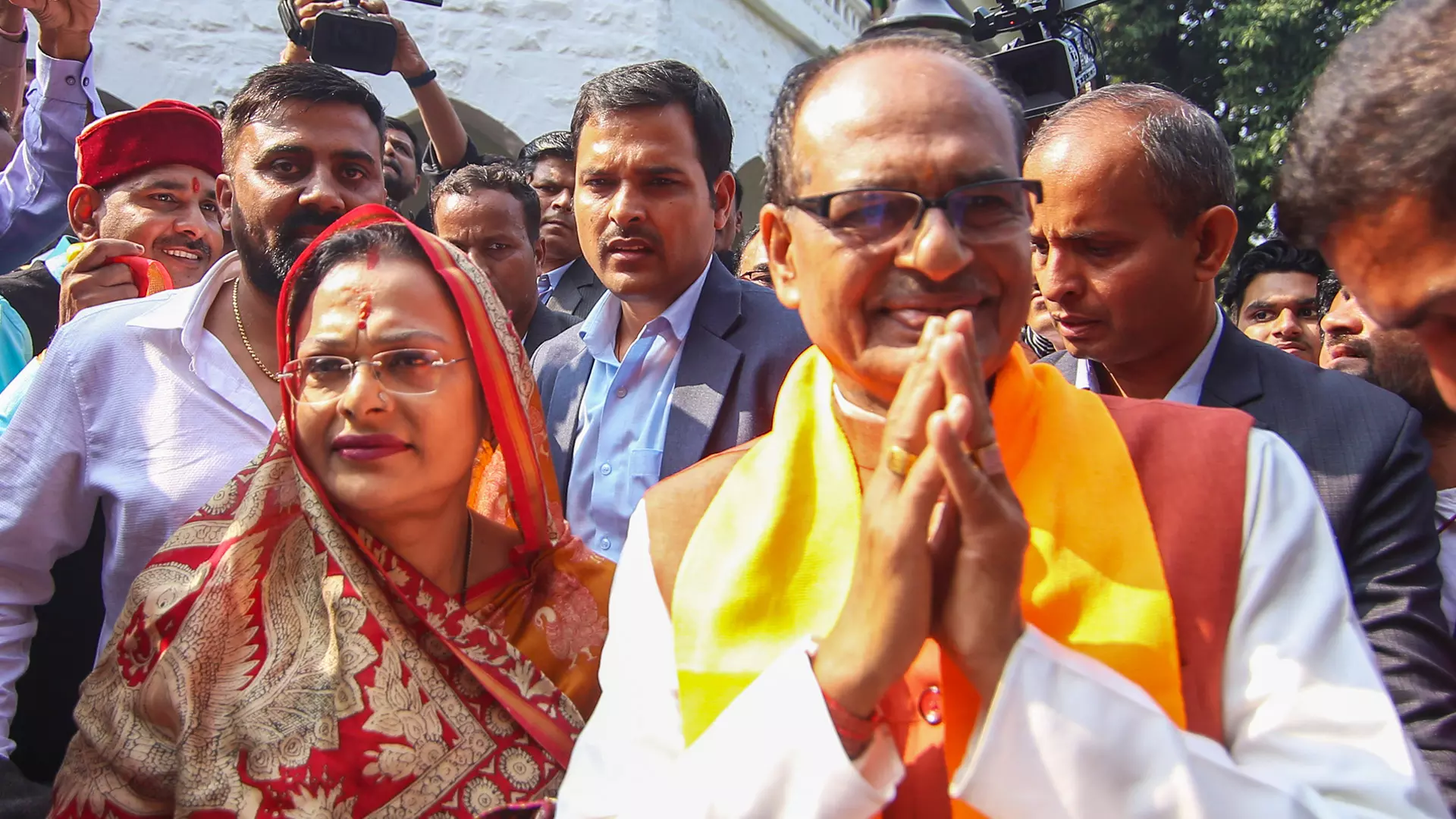
MP | 89% of newly-elected MLAs crorepatis, 39% have criminal cases: Report
Newly-elected BJP MLA from Ratlam City, Chaitanya Kashyap, tops list with declared assets worth Rs 296 crore; Congress' Kamal Nath among three richest lawmakers

As many as 205 of the 230 newly-elected MLAs in Madhya Pradesh are crorepatis, while 90 of them, which is almost 39 per cent of the Assembly strength, have declared criminal cases against themselves, according an Association for Democratic Reforms (ADR) report. Of them, 34 face serious charges for which the maximum punishment is more than five years in jail.
State Congress president Kamal Nath figures among the three richest lawmakers with more than Rs 134 crore worth of assets. Newly-elected BJP MLA from Ratlam City, Chaitanya Kashyap, tops the list with declared assets worth Rs 296 crore, while his party colleague Sanjay Satyendra Pathak (Vijayraghavgarh) was at the second spot with Rs 242 crore assets, according to the report.
The report by the not-for-profit organisation says the number of MLAs possessing assets worth more than Rs 1 crore increased to 205 in 2023 from 187 in 2018. Of these crorepati MLAs, 144 are from the BJP and 61 from the Congress.
MLAs with lowest assets
The BJP swept the Madhya Pradesh assembly polls, winning 163 seats, increasing its tally from 109 in 2018. The Congress, which had won 114 seats in 2018 in the state, was reduced to 66 seats, while new entrant Bharat Adivasi Party managed to win in one constituency.
The winning candidate of the Bharat Adivasi Party, Kamlesh Dodiyar, leads among the newly elected MLAs with lowest assets. Dodiyar has declared assets worth Rs 18 lakh.
Two other candidates with lowest assets included BJP’s Santosh Varkade (Sihora) with assets worth Rs 25 lakh and his party colleague Kanchan Mukesh Tanve (Khandwa) with assets totalling Rs 26 lakh, said the report.
Among the candidates having the highest liabilities, BJP’s former minister Surendra Patwa (Bhojpur) is leading with debt of Rs 57 crore. Dinesh Jain (Mahidpur) of the Congress is in second place with Rs 30 crore, while BJP’s Bhupendra Singh (Khurai) is in third place with Rs 23 crore, said the ADR.
The report said of the 205 crorepatis, 102 MLAs have declared assets of Rs 5 crore and above. As many as 71 legislators have declared assets between Rs 2 crore and Rs 5 crore. Also, 48 legislators have declared assets between Rs 50 lakh and Rs 2 crores while nine of the elected MLAs own assets lower than Rs 50 lakh.
The average assets of the newly-elected MLAs stand at Rs 11.77 crore, up from Rs 10.17 crore in 2018, said the report.
Criminal cases against MLAs
In 2018, when the previous elections were held, 94 MLAs, or 41 per cent of the total, had declared criminal cases registered against them. In 2023, this number has dropped to 90, nearly 39 per cent of the 230-member House, an ADR report said.
The report said of these, 34 legislators are facing serious criminal charges, for which the punishment is more than five years or it is non-bailable among other criteria. In 2018, this number was 47.
Pritam Lodhi, elected on a BJP ticket from Pichhore in Shivpuri district, is the only MLA who is facing charges of murder. Five other newly-elected MLAs are facing attempt to murder charges. Three of the candidates declared criminal cases related to women, the ADR report said.
As many as 51 out of the 163 BJP legislators face criminal cases, 16 of them serious offences. This number for the Congress stands at 38 MLAs, including 17 who face serious charges, said the ADR.
The lone winning candidate of the Bharat Adivasi Party is also facing a criminal case.
MP Congress chief Kamal Nath, elected from Chhindwara, has declared two cases of forgery and cheating registered against him in Bhopal and Indore. Charges have not been framed by the court in both the cases, the report said.
No case is pending against Chief Minister Shivraj Singh Chouhan, who was elected from Budhni.
Criteria for serious criminal cases includes the offence for which maximum punishment is of five years or more, if an offence is non-bailable, if it is an electoral offence (IPC 171E or bribery), offence related to loss to exchequer, offences that are assault, murder, kidnap, rape related, offence that are mentioned in Representation of the People Act (Section 8), offences under Prevention of Corruption Act and crimes against women, the report stated.
(With agency inputs)

